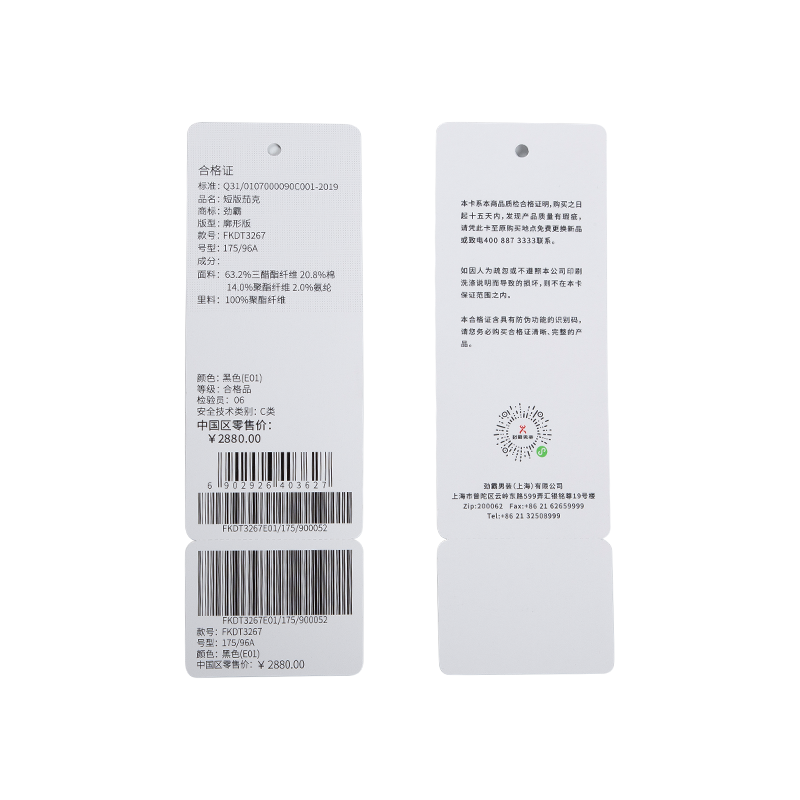In the fast-paced world of fashion, the use of technology is constantly evolving. One of the most exciting advancements in recent years has been the integration of
clothing RFID tags into clothing. These tiny, powerful chips are changing the way we interact with our garments, offering benefits that range from personalized shopping experiences to sustainability and beyond. Let’s delve into the world of clothing RFID tags and explore how they are shaping the future of fashion.
clothing RFID tags are small, paper-thin chips that can be embedded into clothing during the manufacturing process. These tags are equipped with unique identification numbers that can be wirelessly scanned and tracked. The fashion industry has embraced RFID technology for a variety of purposes, such as inventory management, anti-theft measures, and even customer engagement. In stores, RFID tags enable retailers to monitor stock levels in real-time, reducing the occurrence of out-of-stock items and streamlining the replenishment process. Moreover, they provide valuable data on consumer behavior, allowing stores to optimize their layouts and product placements for a more personalized shopping experience.
Beyond the realm of retail, clothing RFID tags are also making significant contributions to sustainability in the fashion industry. With the growing emphasis on transparency and ethical sourcing, these tags can provide vital information about the garment’s origins, including details about the materials used and the production process. By scanning an clothing RFID tags, consumers can access data about the environmental impact of the clothing, enabling them to make more informed purchasing decisions. Additionally, RFID technology facilitates the tracking of products throughout their lifecycle, making it easier to recycle and repurpose garments, ultimately reducing waste and promoting a circular economy.

The integration of clothing RFID tags into clothing is not without its challenges and concerns. Privacy issues have been raised regarding the collection and use of data obtained through RFID technology. Consumers are understandably cautious about the potential for their personal information to be exploited. To address this, industry experts emphasize the importance of transparency and clear communication regarding the purpose of clothing RFID tags. It is crucial for companies to prioritize data security and provide clear opt-in/opt-out options for consumers. By doing so, trust can be established, and the full potential of RFID technology in fashion can be realized without compromising privacy.
The integration of clothing RFID tags into clothing represents a transformative shift in the fashion industry. From enhancing the retail experience to promoting sustainability and addressing privacy concerns, the impact of this technology is far-reaching. As RFID technology continues to evolve, its potential applications in fashion are boundless, offering exciting possibilities for both businesses and consumers. By staying informed and engaging in open dialogue about RFID technology, we can ensure that it enriches the fashion landscape while upholding ethical and privacy standards. Embracing the potential of clothing RFID tags, the future of fashion is set to be more dynamic, sustainable, and connected than ever before.

